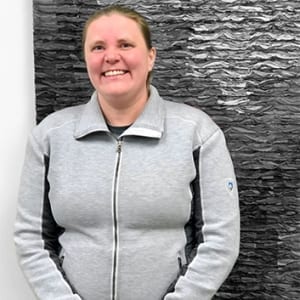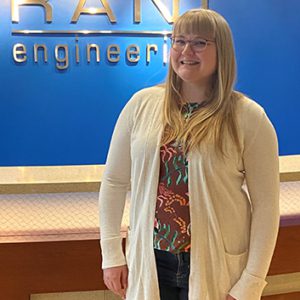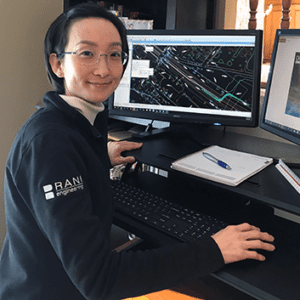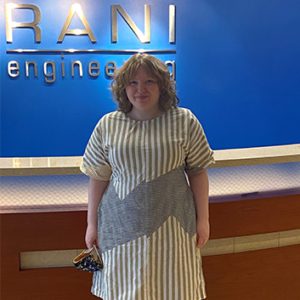International Women in Engineering Day began in the UK in 2014 as a national campaign from the Women’s Engineering Society. Since then, INWED has grown enormously, receiving UNESCO patronage in 2016 and going truly global the following year.
National Women in Engineering Day was launched for the first time in the UK on June 23rd, 2014, by the Women’s Engineering Society (WES) to celebrate its 95th anniversary.
In 2017, National Women in Engineering Day became international for the first time due to the interest and enthusiasm developed by the international audience and participants in the previous years. International Women in Engineering Day (INWED) was born to enable celebrating women in engineering to become global.
The theme for this year is Imagine the Future. This is an opportunity to share stories about looking towards the future, focusing on the inventors and innovators who will change the industry for the better.
At Rani, we have a highly talented group of female engineers with up to 25 years of experience. In May of 2022, we added to this talent when Eva Clark joined Rani after graduating from Minnesota State University in Mankato. In addition, Rani welcomed two summer interns, Claudia Seyfarth (a student at Marquette University) and Rebecca Skow (a student at NDSU).
Our female engineers were asked questions to gain insight to help others as they navigate potential careers in engineering.
What advice would you give to females in college pursuing a degree in engineering and those just starting their careers?
Heather Spencer, PE
My advice would be to find a mentor or mentors. This arrangement doesn’t have to be formal, but it could be. It is good to have an experienced engineer’s input when making decisions about your career path or just exploring options. Also, for those pursuing a degree, don’t give up when your early classes are challenging. Engineering is an excellent career with many opportunities.
Kaylyn Haley, PE
You can never know too many people. Networking is an essential part of the industry and is the best way to learn, grow and advance in your career.
Savannah Hintsala, EIT
If you are interested in pursuing a degree in engineering, I recommend you search for internships in your area of interest. Internships are one of the best ways to explore if something is or is not a good fit for you. If you are interested in engineering but don’t know what kind of engineering to pursue, definitely go to the career center and sit down with a counselor! They have many resources, including personality exams, to help you find an excellent place to start. It may be intimidating but reach out to people you know who work in your desired industry and invite them to meet. They can help answer questions and provide guidance. Also, if your college offers practice interviews, do it! They can provide valuable input to help you stand out as a young professional. Be intentional during career fairs. Plan which booths to visit, research the company and be persistent in following up (whether by email or at the following year’s career fair).
For those just starting their career, I would always say to be authentic to yourself. Find strength and confidence in all you have accomplished and the obstacles you have overcome to get where you are. Be engaged at work, in meetings, and with coworkers. Camaraderie and work culture make a huge difference in the day-to-day work life. Find a workplace that promotes work-life balance. It is essential to always take care of your health and happiness inside and outside of work. Ask questions, and don’t be afraid to say what is on your mind. Leadership values honesty and feedback. Find a mentor who works in the industry to help provide guidance and support as you move through your career. Attend professional organization networking events when you can. They offer fun opportunities to meet others in the industry who you could work with in the future!
Yoko Nomura, EIT
If you are still in college, my advice is to meet each moment with curiosity. Enjoy the unexpected and seemingly dull encounters. Approach internships, classes, and interviews with this curiosity and an open mind. You will be surprised to learn, maybe not immediately, but over time, and with patience and trust. I also recommend you meet with people who work at the workplaces of your interest over coffee. People love talking about their work and want to help you learn & grow!
If you are starting your career, find a mentor who can teach you important things outside of technical skills, including setting a healthy boundary between work and personal life, building good work relationships within and outside the company, etc. Sometimes your company may have an unhealthy work culture, and you may not be aware of it, so it is good to talk and share experiences with your friends who work elsewhere. The quality of a company culture makes a significant difference in your work life.
What sparked your interest in engineering, and what are you most excited about starting your engineering career?
Eva Clark
I became interested in engineering because it’s a way to put my love of creating things into practice. I’m very excited to work on the light rail and impact the public transit I (and many other Minnesotans) use daily.
Claudia Seyfarth
I’ve always loved math and science, and when I realized I could use that to invent solutions to people’s problems, I knew engineering was the field for me. As someone still unsure about how they’d like to accomplish that, I’m excited about trying out all the different areas of engineering and seeing what I love about each!
Rebecca Skow
I was fortunate enough to have introductory engineering courses offered during my time in high school. In those classes, they would give us problems to solve, and then we would work through them. Some projects were more hands-on and building, while other projects were very math-based. This was when I decided that I wanted to go into civil engineering. I am most excited to be able to take everything that I have learned and experienced during college and apply it and solve complex problems that aren’t as straightforward.











